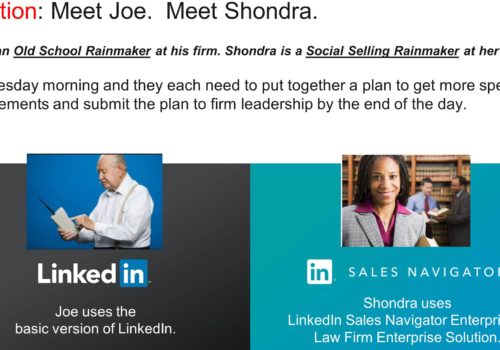“Yes, I just closed my first big client deal this morning,” said John, a management consultant, talking on his cell phone as he made his way out of the office, “and yeah, I’m really excited about our first date later this evening, Jennifer, it’s like my perseverance this week paid off on multiple fronts.”
“Yes, your perseverance paid off. So I’ll see you at 7:00 PM,” Jennifer, an anesthesiologist, replied calmly while licking her lips and trying not to blush on the other end of the phone.
—
“Everything na double double,” was Ada’s simple response to her colleague Obi’s compliment about how she was able to hit her sales quota on the same month that she got engaged to her fiancé.
—
“When I received the email from our largest customer about the cancellation, it felt sort of like the call I received from my ex-wife about the divorce,” Martinez, a store owner, whispered to his secretary as he stared blankly out of his office window.
—
Lovers and Sellers have a few things in common…
According to a Women’s Health Magazine report, the average woman will fall in love twice before settling down with the one she feels treats her the best. According to a McKinsey & Company report, 70% of buying experiences are based on how the customer feels they are being treated.
In a business relationship, nothing is accomplished until the customer buys what the seller is selling; and in a romantic relationship, nothing is consummated until one lover buys into what the other lover is feeling. Without that “meeting of the minds” between the two parties, the relationship is not fully activated yet– it is more like a “pre-relationship” (i.e. pre-loving, pre-selling).
For example, imagine a seller reporting that a purchase has been made without any agreement from the customer; or imagine a man saying that he’s in a romantic relationship with a woman who has no idea about his feelings for her. Most reasonable people would agree that the aforementioned seller and lover are not being real. The concept of “pre-relationship” is interesting on three fronts.
- First, it delineates the preparation steps that lovers and sellers take beforehand in order to make a relationship real. By “real”, I mean the seller moves from making a sale “in his mind” (e.g. prospecting) to making an actual sale that he can record and report. In the case of lovers, making a relationship “real” means moving from having unexpressed feelings (e.g. daydreaming) to expressing your similar feelings for each other.
- Second, the concept of pre-relationship is interesting because many of the things that you have to do before a relationship is fully activated are things that you have to do during the relationship (especially if you want a healthy relationship). For example, a company has to make time to address the needs of its prospective customers in much the same way that the company will have to make time to address the needs of these prospective customers once they become actual customers. Similarly, making time is both a currency for dating and for being in a romantic relationship.
- Third, the concept of pre-relationship is interesting because it means that loving and selling can each be broken down into distinct stages. Breaking an experience down into stages allows us to better understand the experience as a whole. Something happens before, during, and after. For the sake of good argumentation, it is fair to point out at this juncture that one key difference between the experience of loving and the experience of selling might be in the interpretation of the “after” stage. Things may happen “after-sale/post-selling” (e.g. great customer service) that are different-in-kind from “after-love/post-loving” activities. It’s kind of hard to make yourself available for “services” of any kind after a romantic relationship ends (or at the very least, it’s probably not advisable). However, an equally fair interpretation is to see selling as not over until the customer cancels service or returns product; so in that vein, customer service is still part of the sales process. In fact, one innovative company, SalesReUp, has broken down the sales process into seven steps:
- Pre-Sale
- Find Need
- Show Value
- Plan the Close
- Close the Sale
- Post-Sale
- Sales Lifestyle
What do the following enterprises have in common: ExxonMobil, Oracle, Dell, Cbeyond, Boston Market, Vector Marketing, Williams Fried Chicken… Based on over 15 years of research in working with small, local businesses to large, global companies, the founders of SalesReUp have observed that selling has key ingredients that are present regardless of how selling is baked relative to company size, geography, or industry. Similarly, if there was a cookbook for love (actually, there kind of is, check this out), most people would agree that there are key ingredients for love that are indispensable across different love recipes or love types.
If there are key elements of selling and loving, then perhaps there are some similarities between each of these key elements which would indicate that lovers and sellers may not only have a few things in common, they may actually have 100 things in common…
Pre-Sale | Pre-Love.
SalesReUp has a proprietary mechanism that can help everyone re-up their sales skills across the seven step process. For example, prospecting for a new lead contact and appointment-setting with that contact are part of the pre-sale step. The key ingredient in the pre-sale step is preparation.
- Lovers and Sellers prepare. Merriam-Webster Dictionary defines prepare as to make something ready for consideration or use. Loving requires one lover to make something ready (e.g. date night request) for the other lover to consider; and selling requires the seller to make something ready (e.g. product description) for the customer to consider.
- Lovers and Sellers need access to useful information. Salespeople utilize online resources like LinkedIn and Hoovers to get some intel on prospects; similarly, online resources like E-Harmony and -Plenty-of-Fish can provide some useful “love connection” info.
- Lovers and Sellers utilize marketing. After sellers get useful information, they can then market to their target group by way of advertising campaigns and such. Lovers do some marketing of their own as well, especially considering how profiles are created on dating websites to attract the attention of “Mr. Right” or “Mrs. Trophy Wife”.
- Lovers and Sellers have to get contact information. It’s one thing to gather intel on a love interest or sales prospect, it’s another thing to get that person’s contact information to reach out and use the intel you’ve gathered.
- Lovers and Sellers have to make contact. Having the phone number is only half the battle, picking up the phone to call that fine lady or that top executive is a whole different ballgame.
- Lovers and Sellers have to give their contact information. Forgetting to share contact info is one of the most common errors salespeople make (source: SmugMug Blog).
- Lovers and Sellers can get referrals. Jack: [running into Liz in the hallway on the day of the blind date he set up for her] What are you gonna wear? Liz Lemon: This probably [indicating she will wear her office clothes] Jack: That won’t do [fishes a wad of cash from his pocket and proceeds to give Lemon some money] (source: 30 Rock episode)
- Lovers and Sellers can give referrals. My boyfriend’s friend will be such a good fit for you as he also likes motorcycles. I’ll give you his number. – BFF | We don’t sell that here but I know another store that carries that exact brand. – Neighborhood Store Owner
- Lovers and Sellers have to manage a list of contacts. What does a company’s CRM system and a super model’s little black book have in common? Managing contacts; in fact, some people have gotten so good at managing contacts that they have binders full of women.
- Lovers and Sellers have to generate good leads. “The leads are weak.” (Glengarry Glen Ross)
- Lovers and Sellers follow up on good leads. “The leads are weak? You’re weak.” (Glengarry Glen Ross)
- Lovers and Sellers have to deal with gatekeepers. I can’t transfer you to the VP directly, but I can transfer you to his administrative assistant. -ABC Co. switchboard operator. | You have to get on her dad’s good side if you want to ask her out. – Childhood friend.
- Lovers and Sellers try to make an impression. It’s kind of hard to buy something that fails to make an impression on you. In a sales transaction, maybe what you purchase doesn’t make an impression on your account right away but certainly anything you buy will make some kind of an impression on some entity’s cash position even if it’s not your money. Similarly, in a love interaction, an impression is made in some kind of way, hence phrases such as “he made a good first impression” and “it was love at first sight for her”.
- Lovers and Sellers have to set appointments. Think romantic date nights, and think vendor presentations.
- Lovers and Sellers have to confirm appointments. Are we still on for the meeting next week Tuesday?
- Lovers and Sellers have to show up to appointments. You didn’t show up for our date yet again, but I still want to marry you – Ms. Never Happens.
- Lovers and Sellers have to have their own personal greeting. Think pick up lines at the night club, and think weather jokes before the conference call starts.
- Lovers and Sellers usually have an agenda in mind. Reflect on questions like: Is she worth a second date? Do I even want to do business with this client?
Find Need.
You can’t always get what you want, but if you try sometimes, you might find, you get what you need, according to a popular love song by The Rolling Stones. Interestingly, to meet someone’s need, you must first find it. Falling in love is really all about looking for needs. By the way, why do we say “fall in love” instead of “rise in love”? Part of the reason is that for many people, the needs of others are located beneath their own needs; therefore, in order for you to love someone else, you have to “drop” your attention down to meet that person’s needs. In sales, the highest performing sales professionals pay attention to customer needs. The founders of SalesReUp have observed that a salesperson’s ability to identify the right needs of a prospective customer is a key determinant in the outcome of the sales process.
- Lovers and Sellers have a “you may be interested in this…” disposition. This disposition permeates across all aspects of loving and selling. Loving and selling, at a fundamental level, simply allows people to find and meet certain interests. When dealing with a seller or a lover, there always seems to be this sense that they have something to give, it’s almost taken for granted. Problems usually surface when one feels like the seller or lover is not giving any or enough of the something that they have to give.
- Lovers and Sellers ask open ended questions. How can I help you?
- Lovers and Sellers ask close ended questions. Do you want my help?
- Lovers and Sellers make assumptions. “Your assumptions are your windows on the world. Scrub them off every once in a while, or the light won’t come in.” – Isaac Asimov
- Lovers and Sellers try to make educated guesses. Assumptions plus intel equals educated guess.
- Lovers and Sellers have to present historical data. Why did you and your ex break up?
- Lovers and Sellers have to discuss current facts. So what do you do for a living? Jennifer said as she made eye contact with him on their first date.
- Lovers and Sellers have future goals. What do these two things have in common: a sales quota and a wedding date set for next month? Future goals.
- Lovers and Sellers have to make plans for the future. Even today’s breakup is a plan for the future. What’s the plan? Not seeing each other anymore starting tomorrow.
- Lovers and Sellers have to react to plans for the future. A prime example here is when one lover calls off an engagement which leads to a cancellation of wedding plans.
- Lovers and Sellers are expected to engage in discussions about the needs of others. Consider this question: Given your experience, what do you think would be most helpful for our company at this stage?
- Lovers and Sellers are expected to engage in discussions about their own needs. We require the contract to be signed by month’s end to honor the discount. – Smart Salesperson.
- Lovers and Sellers are expected to take good notes. It’s difficult to match your solution up to someone’s needs if you don’t recall their needs.
- Lovers and Sellers prioritize their own needs. To meet first in person or by phone? That’s the money question.
- Lovers and Sellers are expected to help others prioritize their needs. How do you think we should approach this decision?
- Lovers and Sellers diagnose needs. They separate needs from wants… and filter need-to-have from nice-to-have– what are those things the buyer is not really willing to spend money on or the lover is not actually willing to spend time on…
Show Value.
Kiss and Tell or Show and Tell? Product Demo or Love Memo? the proof is always in the pudding…
- Lovers and Sellers focus on opportunities to take things to the next level. Success in selling and loving lies in one’s ability to take things up a level. A salesperson who generates leads but fails to close deals may not be as valuable as a salesperson who generates leads and closes deals. Likewise, a woman that has been married to the same partner for over 50 years will likely be seen as more successful in love than a woman who has been on over 50 dates.
- Lovers and Sellers are expected to engage in discussions about how to address the needs of others. Consider this question: Given your experience, how would you help us address what is needed in our company at this stage?
- Lovers and Sellers are periodically asked to demonstrate how they would solve a hypothetical problem. What if my mother doesn’t like your job… would you quit?
- Lovers and Sellers have to get into arguments. Finding and meeting the needs of others will always involve no arguments whatsoever. – Mr. Nobody.
- Lovers and Sellers can win an argument without actually winning. Note: you can win “argument battle” and still lose “argument war” e.g. no sale email or break-up text message.
- Lovers and Sellers can lose an argument without actually losing. Note: Customer is always right (especially when they end up buying from you).
- Lovers and Sellers have to be aware of competitors. Consider cheaper prices and childhood friend crushes (will you go out with me? yes, no, maybe).
- Lovers and Sellers have to distinguish themselves from competitors. Irreplaceable (see lyrics by Beyonce).
- Lovers and Sellers are regularly asked to provide references. Custom in parts of West Africa dictates that the groom must have elders from his village (who can vouch for his family’s good standing) confer with the bride’s family before the traditional marriage is effectuated.
- Lovers and Sellers need to have references to provide. Imagine not having any references to provide at the point of sale upon request from a prospect… deal-breaker? Probably.
- Lovers and Sellers must be presentable. They say beauty is in the eye of the beholder, but the beholder has to have something (or someone) to behold.
- Lovers and Sellers try to predict the future. In sales, it’s called forecasting. In love, it’s called fantasizing.
- Lovers and Sellers help others try to predict the future. Think ROI discussions.
- Lovers and Sellers are expected to share success stories. Your project references better check out. Your ex better not have a restraining order against you.
Plan the Close.
- Lovers and Sellers make proposals. A proposal is the picture, negotiations are the pixels.
- Lovers and Sellers talk to others before they make a proposal. For example, talking to your girlfriend’s father before you propose to her; or talking to your company’s invoicing team before you propose installment payments.
- Lovers and Sellers review the terms and conditions of a proposal before proposing it. Get Procurement involved. Get Legal involved. Get your best friend involved.
- Lovers and Sellers tie their proposals to a timeline. This discount expires on the 31st. Our wedding date has been set for August.
- Lovers and Sellers make concessions. “Aw baby I’m satisfied, even if you‘re not just mine.” – Ashanti
- Lovers and Sellers have alternatives but can act like they don’t have any alternatives. “Girl, you are my life.” – P Square
- Lovers and Sellers can make a proposal and then take it back. “Un-break my heart.” – Toni Braxton
- Lovers and Sellers can walk away from a pre-relationship negotiation. After the second date, I lost interest completely when he asked to move in with me. – Online Dater
- Lovers and Sellers can walk back into a pre-relationship negotiation that they initially walked away from. I thought that vendor could meet our needs but I believe we’ve decided to re-engage with your company about your solution. Are you still open to meet with us? – Prospective Client.
- Lovers and Sellers have to acknowledge objections. Let me see if I understand what you mean…
- Lovers and Sellers have to overcome objections. I understand what you feel about that. Many others have felt the same way. And what they have found is that….
- Lovers and Sellers have to deal with people who are blockers or deal-breakers. You have to talk to your wife? Give me a break. – Frustrated Salesperson.
- Lovers and Sellers give counteroffers. “I’m gonna make him an offer he can’t refuse.” (The Godfather)
- Lovers and Sellers receive counteroffers. “My offer is this… nothing!” (The Godfather Part II)
- Lovers and Sellers apply principles of the “trial close”. Is now a good time to send you the paperwork to look over? – Trial Closer
Close the Sale.
- Lovers and Sellers accept proposals. In sales, accepting an RFP is kind of like accepting your partner’s marriage proposal.
- Lovers and Sellers talk to others after they accept a proposal. “Dad, we’re engaged.” – Happiest girl in the world.
- Lovers and Sellers sign agreements. “Get them to sign on the line which is dotted.” (Glengarry Glen Ross)
- Lovers and Sellers may have to get others to also sign an agreement. Consider a pastor’s signature on a marriage certificate.
- Lovers and Sellers are both buyers. Check, please.
Post-Sale | Post-Love.
Consider how the principles of good customer service can be applied to maintaining a loving relationship.
- Lovers and Sellers must be able to keep promises. “We must not promise what we ought not, lest we be called on to perform what we cannot.” ~Abraham Lincoln
- Lovers and Sellers must be able to protect personal identity information. See The Wall Street Journal report on Target Corporation.
- Lovers and Sellers may have to hear complaints about the relationship. Behold the Facebook comments section.
- Lovers and Sellers may have to choose how to deal with relationship complaints. What’s up with the Facebook option to defriend or unfriend (?)
- Lovers and Sellers may be required to share updated contact information. This is paramount to keep the relationship going… it’s a little difficult to be in a relationship with someone that you can no longer contact.
- Lovers and Sellers can walk away from a relationship. It’s not you, it’s me.
- Lovers and Sellers may want to walk back into a relationship that they initially walked away from. “Cry me a river” – Justin Timberlake
Sales Lifestyle | Love Lifestyle.
- Lovers and Sellers deal with personal rejection. All the time.
- Lovers and Sellers have to handle interviews. Maybe even some interrogations from your mother-in-law every now and then.
- Lovers and Sellers can choose to be right all the time or choose to be in a relationship. Sometimes, both of those realities can be at odds.
- Lovers and Sellers are better served by looking for win-win situations. Expand the pie. (see Harvard Law School note on Integrative Bargaining versus Distributive Bargaining)
- Lovers and Sellers should know how to give an apology. Make apologies meaningful. (see University of Massachusetts Amherst note)
- Lovers and Sellers should know how to receive an apology. EPH 4:31 Get rid of all bitterness.
- Lovers and Sellers should know how to give constructive criticism. Be thoughtful.
- Lovers and Sellers should know how to receive constructive criticism. This is the secret to career improvement according to Forbes Magazine.
- Lovers and Sellers should know how to give compliments. Be even more thoughtful.
- Lovers and Sellers should know how to receive compliments. “With arms wide open…” – Creed
- Lovers and Sellers must know how to use technology to stay in touch when they are not physically present. Hello Skype. Hi Google Chat.
- Lovers and Sellers must know how to not be distracted by technology when they are physically present. Please turn off all cell phones at the dinner table.
- Lovers and Sellers sometimes have to deliver bad news. This just in…
- Lovers and Sellers sometimes have to accept bad news. We have to cancel.
- Lovers and Sellers have to remember names. “What’s my name?” – Rihanna
- Lovers and Sellers have to be able to give directions. How to give directions in 8 steps
- Lovers and Sellers have to be able to follow directions. Servant leader.
- Lovers and Sellers have to make time together. ECCL 3:1 There’s a time for everything.
- Lovers and Sellers have to spend time together. “Do you remember the time, when we fell in love?” – Michael Jackson
- Lovers and Sellers must be able to share secrets. 75% of the value from strategic sourcing can erode within 18 months. One of the most powerful ways to create value through supplier partnerships and receive preferred access to scarce resources is to secure “customer of choice” status with a key supplier based on best practices sharing, collaboration, and trust. (Source: CEB)
- Lovers and Sellers must be able to keep secrets. “Girl, you’ll always have a place in my heart.” – 112.
- Lovers and Sellers must be able to express gratitude. Send a Thank You note (handwritten… and amaze them with that groundbreaking technology of putting pen to paper).
- Lovers and Sellers must be able to accept gratitude. You’re welcome.
- Lovers and Sellers put themselves in a better position if they are financially literate. “Rule 1: Never lose money. Rule 2: Never forget Rule 1.” – Warren Buffet.
- Lovers and Sellers make the world go round. Money simply comes along for the ride.
Dedicated to my wife.
–





